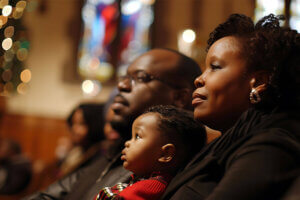
Before the plagues. Before the basket. Before Moses spoke a word—there was a sunrise. A patriarch. A whisper of what was coming.
Faith, Family, and Foreshadowing: What Lies Beneath the Surface of Prelude
When readers enter the world of The Moses Chronicles: Prelude, they expect the beginning of Exodus. What they find instead is the slow, sacred ending of a man’s life. Jacob—Israel—lies in his tent, not yet gone, but already speaking to eternity. And in that liminal space between breath and blessing, we see the real beginning of deliverance: not in battle, but in memory.
This is what makes Prelude unlike any other biblical novel. Its story doesn’t open with action, but with soul. It doesn’t begin in Egypt’s throne room—but in an old man’s quiet tent. It’s here, in this holy hush, that *faith, family, and foreshadowing* converge—quietly setting the stage for everything to come.
The Last Sunrise (Excerpt from Prelude)
Dawn lay quiet over the camp, morning mist curling in the cold air. The scent of damp earth mingled with smoke from dying embers beneath the heavy linen of Israel’s tent. Stillness pressed in—an unspoken expectancy. It was as though creation itself held its breath.
Israel stirred in his bed, his once-mighty frame reduced to frailty. His eyes, dim with age, blinked slowly against the faint light. Shapes were blurred now, more felt than seen. But he knew the sun was rising. He could feel its warmth edging closer.
He had lived long enough to see his children prosper in Egypt. Long enough to witness the miraculous return of Joseph. Yet even as he lay in Pharaoh’s land, his heart longed for Canaan—for the resting place of Abraham and Isaac.
He knew today was the day.
The usual sounds of morning—laughter, pots, footsteps—were absent. The camp was still.
Outside, the Egyptian palace loomed like a mirage. Joseph and his sons lived there now. Nobility. Influence. Foreign soil.
His thoughts drifted. Rachel. Leah. The ache of losing them had never left. He remembered the absurdity of mandrakes, the desperation for love, the tenderness buried under rivalry.
Then Esau. His brother. The one Elohim had passed over. Had Esau hated him? Or had time softened even that?
There was no anger left. Only longing. And hope.
The sun crested the horizon, bathing the camp in amber light. Israel closed his eyes and let the warmth touch his face.
He was ready.
Beneath the Surface of Legacy
This moment—quiet, reflective, unhurried—is more than a deathbed memory. It’s prophecy in stillness. It’s where the threads of Genesis tie into the roots of Exodus. Jacob remembers Rachel, but buries Leah. He recalls Esau, but blesses Judah. He weeps for the past, even as he prepares to pass the promise forward to Ephraim and Manasseh.
This is how biblical fiction reveals truth: not by changing Scripture, but by letting it breathe. In *Prelude*, breath is everything. Silence carries meaning. The fire doesn’t crackle for tension—it crackles for memory.
Foreshadowing with Faith
Many Christian novels begin with action. But *Prelude* begins with a prayer-shaped life. U.S. readers—especially those seeking substance—will recognize this structure. It echoes their own spiritual arc: the looking back, the letting go, the handing down.
Jacob’s thoughts foreshadow not just Moses’ birth, but the entire moral rhythm of the Exodus: the pain of separation, the choosing of the unlikely, the ache of exile, and the hope of return.
📖 Download 7 Free Chapters (No Sign-Up Needed)
We’re offering seven chapters—three from Prelude, four from Hands That Rock the Cradle—so you can begin the journey yourself.
✅ See how faith, memory, and legacy shape biblical storytelling
✅ Read before Moses is born
✅ Walk the ancient path where breath matters more than battle
📩 Click here to download your free sample
International Readers, we’ve made it easier to pay in your local currency:
KENYA |
PHILIPPINES |
SOUTH AFRICA |
NIGERIA
About the Author
RR Wekesa is a Christian historical fiction author writing faith-rich novels that follow the ancient paths of Scripture, weaving sacred silence and poetic rhythm into every chapter of The Moses Chronicles.
